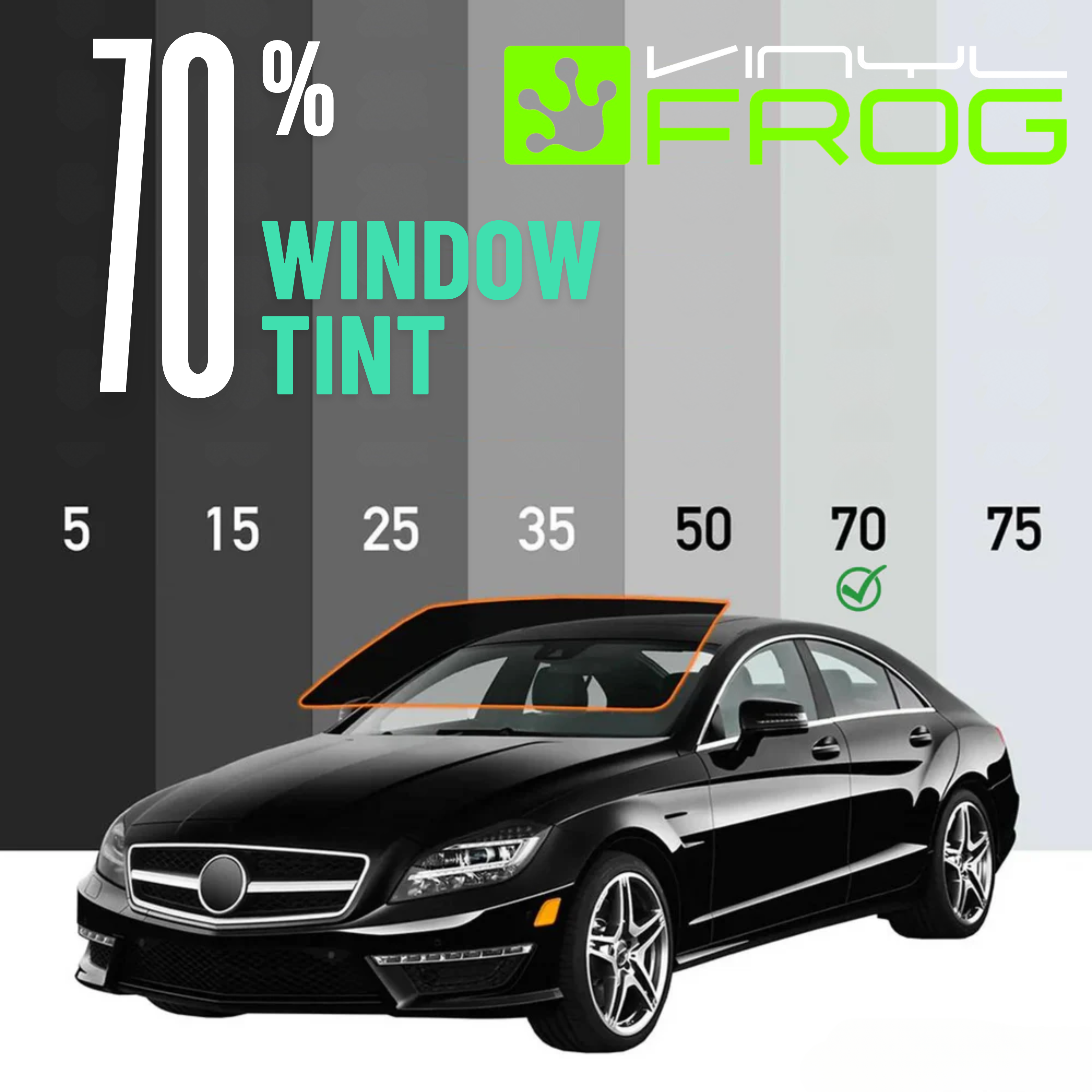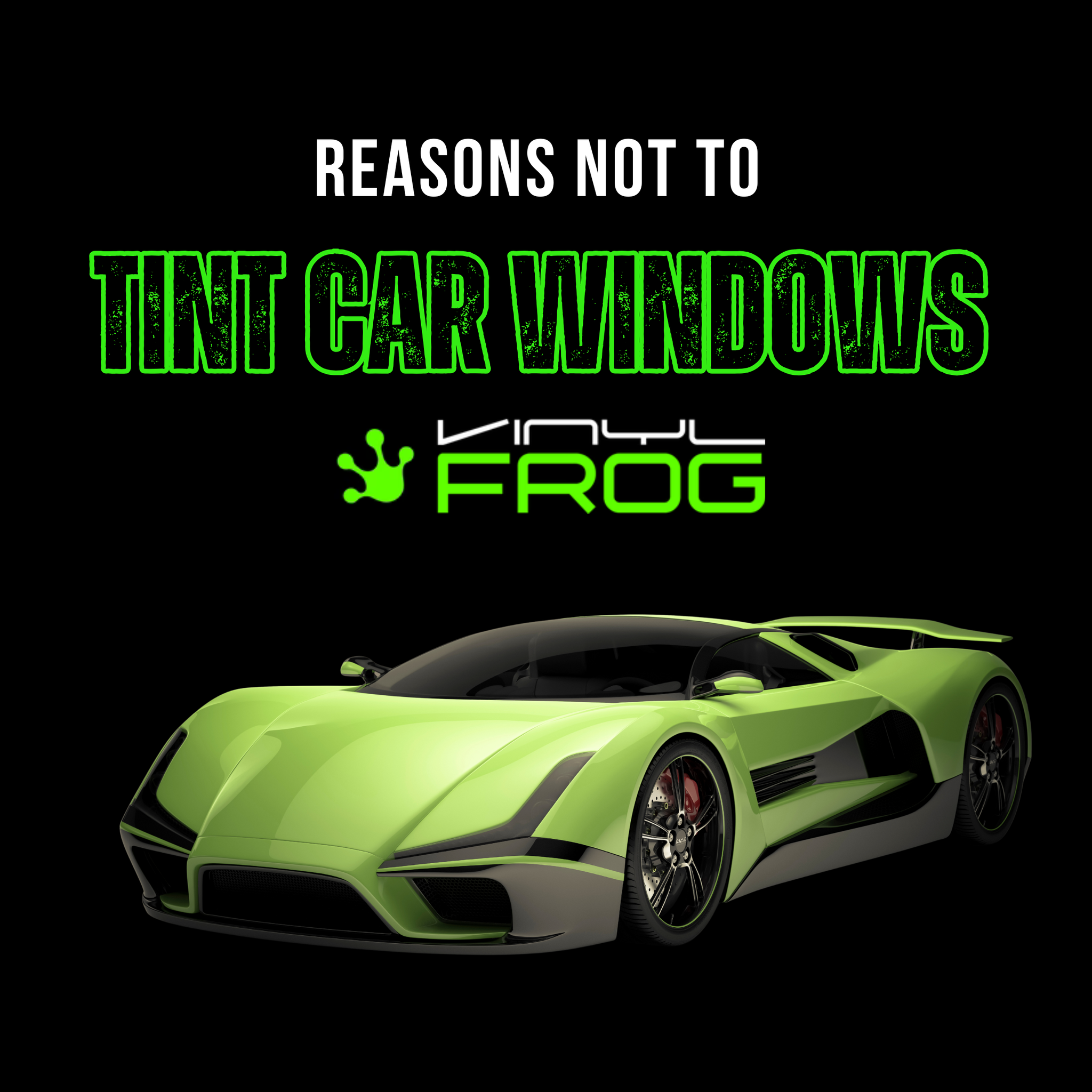Posted By Vinyl Frog On August 6, 2025
Reasons Not To Tint Car Windows

Tinting your car windows might look appealing, but it’s not always a smart decision. While many drivers choose tint for privacy, style, or heat control, few consider the downsides until problems appear.
Window tinting can lead to legal fines, reduced night visibility, safety risks, and even insurance complications. In some cases, it can damage your glass or lower your car’s resale value.Before investing in tint, it’s important to understand these drawbacks clearly.
This guide explains the main reasons not to tint car windows from real-world driving safety to long-term costs so you can decide confidently whether tinting is truly worth it.
1. Legal Restrictions and Possible Fines
Each region or state has strict laws about how dark your window tint can be. Exceeding the legal limit can lead to traffic fines, vehicle inspections, or even orders to remove the tint altogether.These laws are in place for safety reasons overly dark windows make it hard for law enforcement to see inside your car.
For example, California and New York can issue fines between $100–$250 per violation, while states like Texas and Florida may require you to remove illegal tint before passing inspection. If your tint doesn’t meet local standards, you could end up spending more money fixing the issue than you saved in the first place.

2. It Can Reduce Visibility, Especially at Night
Tinted windows are good for blocking sunlight, but at night, they can make things harder. You might struggle to see clearly when backing up, in dark areas, or in the rain.
- A 20–35% VLT (Visible Light Transmission) tint can cut night visibility by nearly 50%, making it harder to see clearly.
- Drivers may struggle to spot pedestrians, cyclists, or vehicles in dimly lit streets or parking lots.
- Dark tints also cause eye strain and fatigue on long drives due to constant light adjustmen
- 25% tint, spotting someone crossing under streetlights can be delayed increasing accident risk
- Even in daylight, heavy tinting can affect side mirror clarity and depth perception, reducing safety awareness.

3. Issues with Insurance and Warranties
Many car owners don’t realize that illegal or aftermarket tinting can affect insurance coverage. If your tint violates local laws, your insurer might deny claims related to visibility or accidents. Some vehicle manufacturers and dealers also void certain warranty claims if the tint film damages electronic components, sensors, or defroster lines. Always check your warranty terms before applying any tint.
4. Maintenance and Repair Costs
Tinted windows require careful maintenance. Using the wrong cleaning products can damage the film, leaving bubbles, scratches, or peeling edges. Replacing or re-tinting windows isn’t cheap especially if your tint has to be professionally removed to comply with regulations. Over time, lower-quality films can fade or turn purple, forcing you to spend more on replacements.

5. Window Tint Can Interfere with GPS, Signals, and Sensors
Modern cars rely on sensors and signals for GPS, mobile connectivity, and keyless entry. Some metallic or ceramic tints can interfere with these signals, causing weak GPS reception or Bluetooth disruptions. For drivers who depend on navigation or smart features, this can become a serious inconvenience and safety concern.
6. Negative Impact on Resale Value
A dark or damaged tint can make your car less appealing to potential buyers. Many people prefer factory-clear windows for better visibility and easier compliance with local laws. If your tint looks worn or illegal in another region, it might reduce your car’s resale value or limit the market of interested buyers.

7. When Tinting Might Still Make Sense
Not all window tinting is bad when done legally and professionally, it can protect your interior from UV rays and reduce heat. The key is moderation. Light, law-approved tinting offers comfort without sacrificing safety or legality. If you still want some tint, choose a certified installer who understands local regulations and uses high-quality film.
Final Thoughts
While window tinting offers style and comfort, it’s not always worth the risks. Legal issues, poor visibility, insurance complications, and maintenance costs can quickly outweigh the benefits. Before you tint your car windows, weigh the pros and cons carefully and check your local laws. Making an informed decision now can save you from costly mistakes later.











